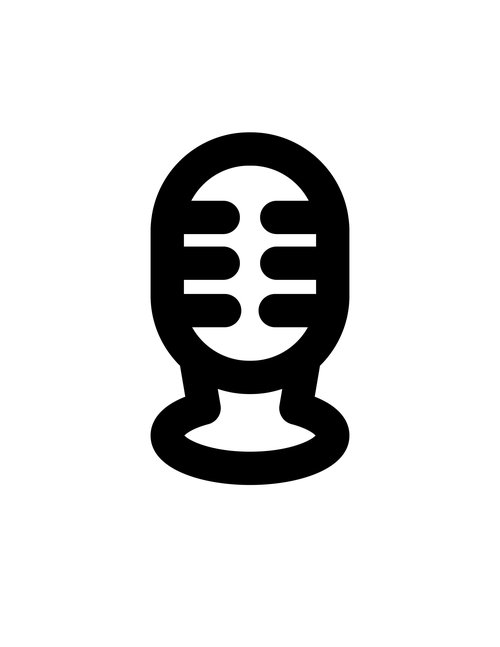A look into the meaning of humour and the weight that our words hold today
Chiara Brum Bozzi ASSOCIATE OPINIONS EDITOR
This article is in no way an attempt to offend, overlook minority issues, nor prescribe to a certain ideal that hurts and offends others. It is an examination of the changing landscape of today’s idea of a joke.
Women can’t drive. Blondes are dumb. Asians are only good at math. Black people steal a lot. Jewish people are cheap. Girls are bad at sports. That math test ‘raped’ you.
Your friend nonchalantly tells you one of these jokes. Do you laugh? What if it is a stranger? What if you are part of the targeted demographic? What if it is sensitive, but not that sensitive? Is there a spectrum ranging from moderately acceptable to never acceptable? Is there ever a time or a place for these jokes? Who’s to say what is or is not allowed? Do you pick your crowd? Is it a lighthearted social commentary meant to point out humorous trends or thinly veiled discrimination, racism, sexism, or oppression? Do all “offensive” jokes perpetuate discrimination in a society that already struggles with the repercussions of oppressive systems such as slavery?
All of these questions point toward a few central themes: the role that jokes play in perpetuating societal problems, the different ways free speech can or should be used and restricted, and what makes a joke funny.
A lot of people feel that all jokes are harmless and anyone who gets worked up about them is sensitive and emotional. However, there is one thing that cannot be up for debate: people’s feelings. I know, I know. The horrid, irrational, emotional, devoid-of-logic, inefficient, useless waste of time that is feelings. Everyone loves to pay attention to feelings until they conflict with what they deem to be important, fool-proof, or logical.
Do you think Rosa Parks helped boycott the oppressive transit system in Alabama by presenting a logical syllogism of deductive reasoning to everyone she crossed paths with? No! She was hurt and angry! She ignited people’s passion for the civil rights movement and drove them to fight for what was right. Feelings, not Aristotelian logic, are the most powerful thing we have to combat injustice. Feelings are what fuel the fire that later becomes supported by reasoning and logic. Feelings mobilize people to action.
Now I will admit, there is a limit to where feelings can bring us. This limit is reached when feelings are corroborated by nothing but the feelings themselves. Hitler was enraged by everything he believed to be wrong with Germany and attributed it to Jewish conspiracy. His anger, passion and repetition of Nazi propaganda ignited fear that was aided by ignorance. This ignorance becomes the seed that plants the tree of prejudice, that is, to pre-judge without experience. When a person is lacking in experience, they are vulnerable to word-of-mouth, which then enables the telling of jokes and stereotypes, or worse, inciting violence, to like-minded people.
For any comedian or joke-teller, the goal is to produce the most laughs possible in a given audience. You need to preserve people’s interest and finish with a great punch line. So, what makes controversial humour appealing?
First and foremost: humour is a mechanism of release. When a comedian or respected authority figure says something borderline discriminatory, people who hold those same beliefs love it. They feel like what they believe is right, especially if it is enforced by a person of power. Nobody laughs at a joke they don’t understand or relate to. Our brains are wired to relay information and recognize patterns. If a pattern is represented in a ‘funny’ way, it can be responded to with laughter. When it comes to jokes that perpetuate stereotypes, these patterns are often found in what people have heard before and not necessarily what they’ve seen or experienced, or what is truth.
Many people, including myself, have heard absurd things throughout childhood that they’ve held onto despite a lack of corroboration. Things like the idea that swallowing gum results in indigestion for seven years, swimming after eating is dangerous, chameleons change colour based on their surroundings (I know – it’s their mood!) or giving credit to Alexander Graham Bell for the invention of the telephone instead of Antonio Meucci. ‘Facts’ like these are likely more cross-cultural than certain stereotypes are, so it makes sense that so many people would believe word of mouth or what their uneducated racist uncle once said at a dinner party, as opposed to scientific or social fact. People are gullible. Children more so. Children at peak impressionability will believe (almost) anything you tell them, especially if they’re not exposed to the people they are being told untrue stereotypes about. So, as long as they’re not told differently, they will internalize those ideas until they become adults who work, and go to dinner parties, and vote, and voice their opinions (as their right to free speech allows). When those ideas come into contact with an experience, however, those jokes can quickly run amok into the realm of discrimination. So, what then?
Censorship involves suppressing speech that may be harmful to others. It involves a whirlwind of opinions ranging from the protection of the vulnerable and their inclusivity to the preservation of fundamental freedoms. Much to some scholars’, academics’, students’, and citizens’ dismay, censorship is nothing short of a barrier to open debate.
Sigmund Stromme, a Norwegian scholar, once said that “strict censorship cannot be maintained without terrorism.” I agree. However, ‘strict’ must be defined. People fear protective censorship because they don’t know what it could lead to. In many ways, this is a warranted fear. But, when censorship is used as a tool of protection for vulnerable groups, it only provides the necessary support for those such as transgender people. A study done by the University of Western Ontario reveals that 97% of Ontarian transgender persons have avoided at least one public place out of fear of harassment or violence. Protective censorship doesn’t mean that you’re not allowed to disagree with things such as gender reassignment. It means that in spite of your objection to it, you still have to treat trans people like human beings (or their cisgender counterparts). Easy, right?
People feel outraged over being silenced or having their sense of humour attacked. So, what does censorship look like in the day-to-day? It’s tricky. Aside from protecting the vulnerable from toxic environments, an excess in censorship can easily give way to creating more ignorance.
The reality is that there are people who will disagree with you. People who will dislike not only your ideas and what you stand for, but who you are. Social justice advocates and free speech advocates must both understand this, as without acceptance of an imperfect reality, there is no room for conversation in the first place. We cannot go around silencing everyone who upsets us, because it is counterproductive and stressful.
People worry that a slip of the tongue or a joke made in ignorance will result in eternal condemnation. This is where censorship in the form of legal repercussions may not be the best course of action. This is why discussion is important. It’s not practical, or helpful, to legally charge everyone who offends us, to fire them and put them in financial ruins, or completely destroy their reputation. That just fuels more anger and misunderstanding.
So, this doesn’t mean that people that laugh at or tell offensive jokes are necessarily bad people or maliciously discriminatory. It just means they may not know how far-reaching their words are. Many ‘jokes’ that aren’t received well often elicit the response that the joke-teller would never use offensive words or believe the contents of their morally ambiguous jokes in real life. Social studies point to the contrary.
In a study done by Italian psychologists Andrea Carnaghi and Anne Maass, it was discovered that the mere exposure of the words “fag” or “fairy” to heterosexuals left them with less favourable views of their homosexual counterparts than if the word “gay” was used. Derogatory labels can negatively affect anyone. This is especially scary when it affects people in positions of power; like police officers or presidents. You can claim that jokingly saying the word “fag” won’t impact your attitudes and thus your behaviour, but science doesn’t lie.
Now, considering many people today feel that telling a joke is much like running through a minefield, it is only fitting that the actual funny aspect of a joke is examined. In a TED talk and research done by Peter McGraw at the University of Colorado Boulder, McGraw illustrates humour as a benign moral violation. It must satisfy three criteria: the humorous situation must be considered a violation (meaning something outside of a social norm – something absurd or exaggerated), the situation must be benign (meaning harmless), and both of these things must occur simultaneously. They are neither too safe or boring (benign) nor too offensive (moral violation).
For example: Jerry Seinfeld once said that people who read tabloids deserve to be lied to. Lying is obviously a moral ‘no-no’ and punishable by law if under oath, and thus encouraging it is a moral violation. However, by highlighting the ridiculousness of tabloids and thus the people who are actually oblivious enough to believe or invest time reading them, he ‘permits’ lying and in turn, creates a benign violation.
“The benign-violation hypothesis suggests that anything that is threatening to one’s sense of how the world ‘ought to be’ will be humorous, as long as the threatening situation also seems benign,” McGraw said.
Furthermore, I can only prompt you, dear reader, with this question: Is your right to tell an offensive and sociologically harmful joke more important and greater than another’s right to life, liberty, and security? Freedom of religion and assembly? Their right to equality and freedom from discrimination on the grounds of race, ethnic origin, sex, age, mental or physical disability?
If yes, this is strange to me. After all, isn’t the best humour supposed to be humour without a target? Jokes that aren’t at anyone’s expense? Maybe it’s just me, but I feel extremely uncomfortable around people who use jokes as weapons. In my world, those people are called bullies.
If all else that I have said has failed to make you reflect on your humour, then refer back to the first lesson in any junior kindergarten class: treat others as you wish to be treated.
Sources:
McGraw on humour:
http://leeds-faculty.colorado.edu/mcgrawp/pdf/mcgraw.warren.2010.pdf
Italian study on derogatory labels:
http://journals.sagepub.com/doi/abs/10.1177/0261927X07300077
Trans statistics from UWO and PULSE project:
The science of humour TED talk, what makes things funny:
https://www.youtube.com/watch?v=ysSgG5V-R3U
Fake facts (alexander graham bell, swallowing gum, swimming after eating):
The Book of General Ignorance by John Lloyd and John Mitchinson, ISBN: 978-0-571-24139-2




